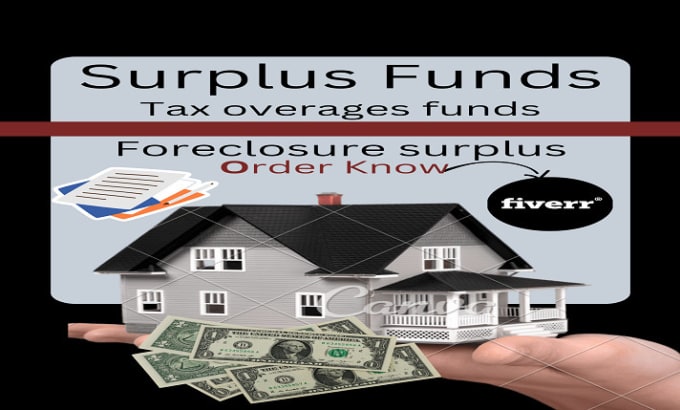All Categories
Featured
Table of Contents
We're talking top-tier collaboration, seamless updates, and storage that expands with you. Ignore data calamities; this has to do with keeping your procedures smooth and your mind secure. There you have it. The tax obligation sale overage sector is still going strong. To make the most of it and climb over the competitors, take into consideration the devices and tips pointed out in this write-up.
And where do you feel stuck? Get to out to the pros in the sector. Their wisdom can make your journey worth it every step of the method.

These can transform right into substantial gains for savvy investors who recognize where to look and exactly how to navigate the procedure. That's why understanding tax overages and the ideal states to locate them is a game-changer in your financial investment trip. In this article, we'll check out: The concept of tax obligation excess and why they matter genuine estate financiers Who can take advantage of tax overages and just how to begin The top states that supply financially rewarding opportunities for tax overage financial investments CaliforniaUp to 5 yearsHigh-value homes, competitive overagesTexas6 months to 2 yearsLarge cities, varied overage potentialFlorida1 to 2 yearsPopulation growth, high home turnoverGeorgia1 to 12 monthsHigh-density locations, ample chances for overagesArizona3 yearsRising home values, strong actual estate marketOhioVaries (normally 1-2 years)Wealth of older homes with overage potentialColorado3 to 5 yearsIncreasing residential property values in particular regionsIllinois2 to 3 yearsMix of city and suburban residential properties for explorationNorth Carolina1 to 2 yearsGrowing cities, potential for overagesTennessee1 yearDiverse building options for prospective overagesIndianaVaries (typically 1-2 years)Country and metropolitan properties with overage potentialMichigan1 to 2 yearsDistressed buildings, possibility for considerable overagesMissouri1 to 3 yearsMix of residential and business propertiesVirginia1 yearGrowing population, varied real estate opportunitiesNevada2 yearsBooming real estate market, possibility for overages Note: The table provides a succinct review of the key attributes of each state for tax overages.
Buying Tax Forfeited Land
Since you comprehend just how tax obligation overages take place, it's time to identify which states offer the juiciest opportunities. Not all states are created equivalent when it concerns tax obligation overages. Some have extra desirable conditions than others. 1.: Each state has its own laws regulating tax obligation sales and overages.
Shorter redemption periods can imply quicker accessibility to overages. Some states may have less financiers vying for excess, providing you a much better possibility to score large.
: Assess the realty market in each state and analyze the potential productivity of tax overages. Abundance of tax sale buildings Generous redemption durations (as much as 5 years) High-value properties and competitive overages Wide array of tax sale buildings Positive redemption periods (6 months to 2 years) Large cities offer remarkable overage potential Comprehensive tax obligation sale inventory Relatively short redemption periods (1 to 2 years) Constant population development and high property turn over Financially rewarding tax obligation sale market Reasonable redemption durations (1 to 12 months) High-density areas offer enough opportunities for overages Active tax obligation lien state Redemption period of 3 years Climbing property values and strong property market Stable tax sale market Redemption periods differ (usually 1 to 2 years) Wealth of older buildings with possible overages Tax lien state with terrific possible Redemption periods varying from 3 to 5 years Boosting property worths in certain regions Established tax sale system Redemption periods in between 2 to 3 years Mix of city and suburban residential or commercial properties for expedition Steady tax sale market Redemption periods of 1 to 2 years Expanding cities present chances for overages Energetic tax lien state Redemption period of 1 year Diverse residential property options for possible excess Durable tax obligation sale inventory Redemption durations differ (generally 1 to 2 years) Both rural and urban homes use potential overages Well-regulated tax obligation sale market Redemption durations of 1 to 2 years Troubled buildings can generate significant overages Positive tax sale setting Redemption periods between 1 to 3 years Mix of property and industrial residential or commercial properties Strong tax obligation sale market Redemption durations usually 1 year Growing population and varied actual estate chances Active tax lien state Redemption period of 2 years Booming real estate market with possibility for excess Prior to diving carelessly into, it's vital to be knowledgeable about the lawful factors to consider and possible risks entailed.
Discover reliable threat administration approaches to safeguard on your own from potential risks and unexpected challenges.: Discover the relevance of performing extensive due diligence on properties and understanding any kind of prospective encumbrances. Since you have a strong understanding of tax excess and the lawful landscape, it's time to focus on approaches that will give you a side in this exciting investment realm.
While tax obligation overages supply exciting potential customers, it's critical to be knowledgeable about the obstacles and potential mistakes that occur. In this area, we'll shine a light on typical challenges you might encounter on your tax overage journey.: Variations in the actual estate market can affect the success of tax excess.
Homes For Sale On Back Taxes
: Unforeseen liens or encumbrances on homes can influence your capability to assert tax overages. As even more financiers recognize the possibility of tax excess, competition might increase.

Yes, many professionals specialize in tax overages and can lead you through the procedure. A number of online courses and workshops supply training on tax sale overages, aiding investors navigate the complexities of this specific niche.
Tax obligation overages happen when a residential or commercial property is offered at a tax obligation sale for more than the owed back tax obligations, charges, and costs. Normally, tax obligation excess are held by the area or state government.
Some states or counties might charge a nominal cost for processing claims, while others may offer this service for free. Building owners are normally notified by mail if there are overages to case.
Yes, some investors concentrate on buying buildings at tax sales, wishing to take advantage of overages. Nonetheless, it's vital to conduct thorough research and understand the associated risks. In situations where numerous parties (e.g., heirs) assert the exact same overage, the issue may require to be worked out in court or with mediation.

It's a good idea to seek advice from a tax obligation specialist to comprehend any kind of tax obligation effects. Mehedi Miraz is the enthusiastic writer behind With a love for creating and an attraction for the world of residential property, Mehedi has developed his know-how via years of dedicated study. His words breathe life into every aspect of the market, making intricate subjects basic and enjoyable to explore.
Delinquent Taxpayers List
If you are, consider venturing into the world of foreclosure overages. In this helpful article, we'll break down the process of starting a repossession overage company in simple, easy-to-understand terms. Prior to we study the details of beginning a repossession excess company, it's necessary to recognize what repossession overages are.
The excess funds, or overage, are legitimately due to the previous house owner or other entitled events. Starting a repossession excess business calls for a fundamental understanding of the process.
Land Tax Sales
Familiarize on your own with the legal regulations in your state regarding the handling of foreclosure overages. It's vital to research and recognize your state's certain guidelines relating to foreclosure overages.
Latest Posts
Homes For Tax Sale
Houses With Back Taxes For Sale
How To Find Unpaid Property Taxes